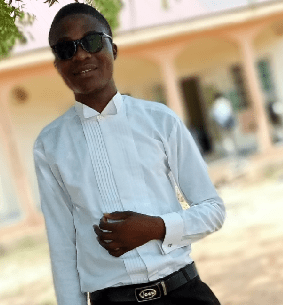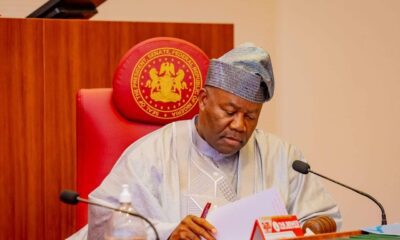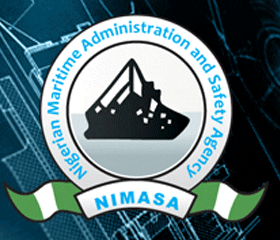Educational Issues
The State Of Education In Nigeria: Problems And Solutions -By Abdulrasheed Hammad

As an indigene of Kwara state who happened to be a former student of Okelele Secondary School, Ilorin Kwara State. I have discovered a lot of challenges facing our educational system in Nigeria. Being an art student, I can categorically say that Literature-in-English is one of the prerequisites and core subjects in the art department, yet, we lacked literature teachers from SS 1 to SS 3 during our time in my secondary school, what could be the genesis of this problem? I engaged in critical thinking and was able to come out with some rational answers which shall be analyzed below.
As a Law student at Usmanu Danfodiyo University, Sokoto, I know as a fact that the learning atmosphere is not that conducive and as such affects assimilation of what is being taught in class. The standard of the e-library needs to be updated to meet the minimum global standard. The problems associated with education shall be thoroughly discussed in this piece and a lasting solution shall be preferred to it.
Agreeing with the legendary philosopher, Malcolm X, “Education is the passport to the future for tomorrow belongs to those who prepare for it today”. For the future of Nigeria to be bright, there is an urgent need to prioritize education, only this can bring the progressive change that we desire to the country irrespective of the region.
To begin with, the System of Education in Nigeria is somewhat archaic, producing graduates full of outdated theories and of little or no practical experience, our universities are filled with professors without discoveries. Little wonder why there is no assurance for a First-Class Graduate to even secure a job after striving so hard for the attainment of academic excellence. What are the causes of these problems? The reasons are not far fetched; no educational institution in Nigeria is adequately funded, inadequate staff and teaching facilities have remained the order of the day.
It is so saddening and sickening that the most recent ranking of universities in the world did not cover any Nigerian University in the first 1000 list, even though, University of Ibadan was ranked 1099th position, no other university in Nigeria followed in the next thousand. This is proof to exhibit that our academic institutions need thorough restructuring to suit the 21st-century standard.
Leave the universities, take our secondary and primary education, it’s to everyone’s knowledge that students in government schools perform poorer than their counterparts in the private schools when it comes to National Examinations, yet, the government employees are more paid than those under proprietors payroll. This is simply because, most staff in government schools were unmeritorious employed and only go to work when they feel like, it may be because they are related to one person in the government and can’t be punished while those in private enjoy proper supervision by the school authority.
Furthermore, Inadequate infrastructures in our schools are one of the challenges we are facing in Nigeria, you find 150 students in a class purposely built meant for 100 or less, with the teachers/lecturers sweating and shouting profusely at the top of their voices to teach students. Our libraries are under-equipped.
A survey by the National Universities Commission (NUC) records that only about 30 percent of the Nigerian student’s population has adequate access to classrooms, lecture theaters, laboratories, workshops, and libraries. The figure showed how poor state of affairs even in our Federal Universities.
Other amenities such as electricity, water, good hostel accommodation, and medical care are also inadequate, even though it is agreed that availability of these will boost students’ performance, for example, in Usmanu Danfodiyo University, due to inadequacy of hostels, some students rented houses in nearby villages, these students suffer to get drinkable and usable water and other basic needs due to inadequacy of power supply, this has consequently affected most facets of students life, especially, their academic careers.
The archaic educational system in Nigeria has made it incomparable with other educational systems in the Western World, for example, Nigerian Universities are still using an obsolete curriculum which has been in use for decades. There is an urgent need for a digital upgrade is the world is now in a period of a digital revolution.
In every problem, there must surely be a solution, to solve the problem of our state of the educational system in Nigeria, the government should learn to prioritize our educational system by funding it adequately and employ more qualified teachers in all academic settings, Payment and augment of the salaries of government staff can be employed and it would go a long way in solving the problems of our educational awkwardness in Nigeria.
Renovation projects in our schools should be encouraged by supplying the libraries with current textbooks and equipment into our laboratories that will help students in studying to be the best of their versions.
Conducive environment for students of Nigeria is a YES in the improvement of education in Nigeria, scrutinizing the lecturers/teachers before employing them is of utmost necessity and the appointment shouldn’t base on the connection but employ our teachers and lecturers meritoriously.
For our country to move forward, we must correct the mistakes of our predecessors and give education its needed priority, our schools should sufficiently funded, equipped with qualified and versatile staff and supervised daily or weekly to access to quality of teachers and teaching materials. If this can be done, many problems in our society would be naturally solved.
Abdulrasheed Hammad is a 300-Level student of Law, I can be reached through this mail abdulrasheedhammad@gmail.com or Whatapp through this contact 08083638703.


















